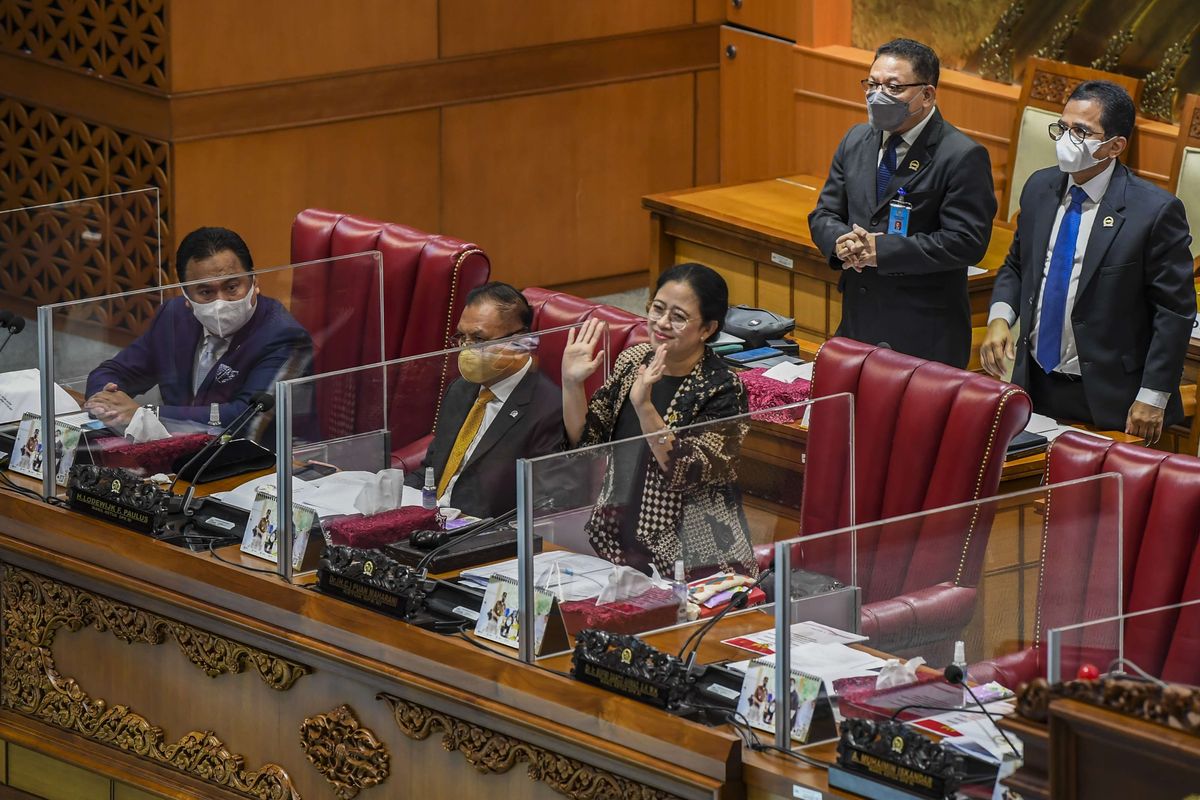
KOMPAS.com - Indonesia’s House of Representatives passed a long-awaited bill to tackle sexual violence on Tuesday, April 12.
The legislation aims to provide a legal framework for victims to secure justice in a country where sexual abuse has often been regarded as a private matter.
A majority of lawmakers backed the bill at the plenary session in parliament on Tuesday, overcoming opposition from some conservative groups in the world’s biggest Muslim-majority country.
“We hope that the implementation of this law will resolve sexual violence cases,” Speaker of the House Puan Maharani said.
Also read: Speed Up Passage of Anti-Sexual Violence Bill: Indonesias President Aide
The new law recognizes men and children can be victims of sexual violence.
Indonesia’s criminal code, a legacy of the Dutch colonial era, recognizes only rape and lewd crimes committed by men against women and does not have provisions for restitution or other remedies for victims and survivors.
Nine forms of sexual violence are recognized in the law: physical and non-physical sexual harassment, sexual torture, forced contraception, forced sterilization, forced marriage, sexual slavery, sexual exploitation, and cyber sexual harassment.
In addition to acknowledging sexual violence as a punishable criminal act, the law has provisions for protection and recovery for the victims.
Activists have broadly welcomed the bill, though some have objected to its limited scope.
Only some sex crimes are included and it omits a specific clause on rape, which the government has said will be included in other legislation.
Also read: Violence Against Women, Children Surges during Pandemic in Indonesia: Ministry
“This is surely a step forward,” Asfinawati, a law expert at Jentera school of law, who has assisted sexual violence victims, said while noting definitions of rape currently covered under the criminal code should still be made clearer.
Sexual violence complaints have been rising in Indonesia, where prosecuting sex crimes has been complicated by the absence of a dedicated legal framework.
Victims’ concerns of being shamed during questioning have also deterred many from speaking up, according to activists.
The final draft of the law includes prison terms of up to 12 years for crimes of physical sexual abuse, both in marriage and outside, 15 years for sexual exploitation, nine years for forced marriage, which includes child marriage, and four years for circulating non-consensual sexual content.
It stipulated that a court must compel convicted abusers to pay restitution and authorities to provide counseling to victims.
Under earlier proposals, the legislation would have also covered abortion and provided a clearer definition of what constituted rape.
The National Commission on Violence Against Women (Komnas Perempuan) and civil society groups first proposed the idea of legislation a decade ago and a bill was submitted to the house four years later.
The law was passed a week after an Indonesian high court sentenced an Islamic boarding school principal to death for raping at least 13 students over five years and impregnating some of them.
Several girls were 11 and 14 years old and were raped over several years, drawing a public outcry over how he was not caught earlier.
In January, President Joko Widodo told his government to expedite the new legislation, which seeks to make it easier to build cases and secure convictions.
One party in parliament, the Islamist Prosperous Justice Party (PKS), had objected to the bill, saying it should regulate against extramarital sex and calling for a ban on sexual relations based on what it described as “deviant” sexual orientation.
Sources: Reuters, AP
Simak breaking news dan berita pilihan kami langsung di ponselmu. Pilih saluran andalanmu akses berita Kompas.com WhatsApp Channel : https://www.whatsapp.com/channel/0029VaFPbedBPzjZrk13HO3D. Pastikan kamu sudah install aplikasi WhatsApp ya.































